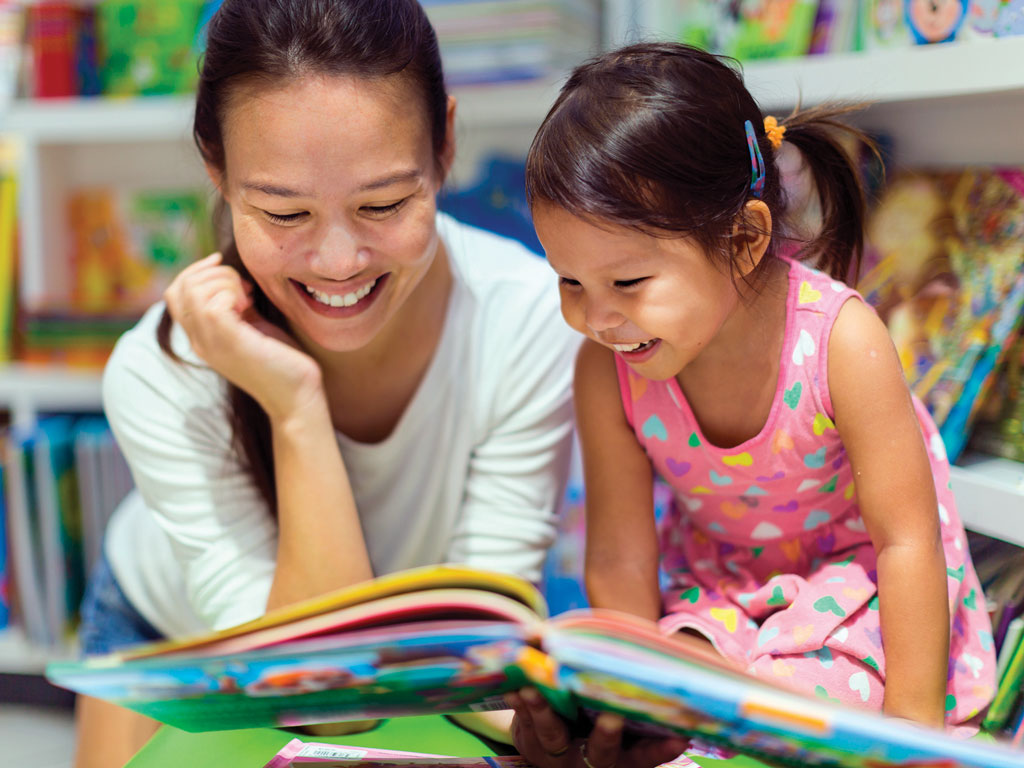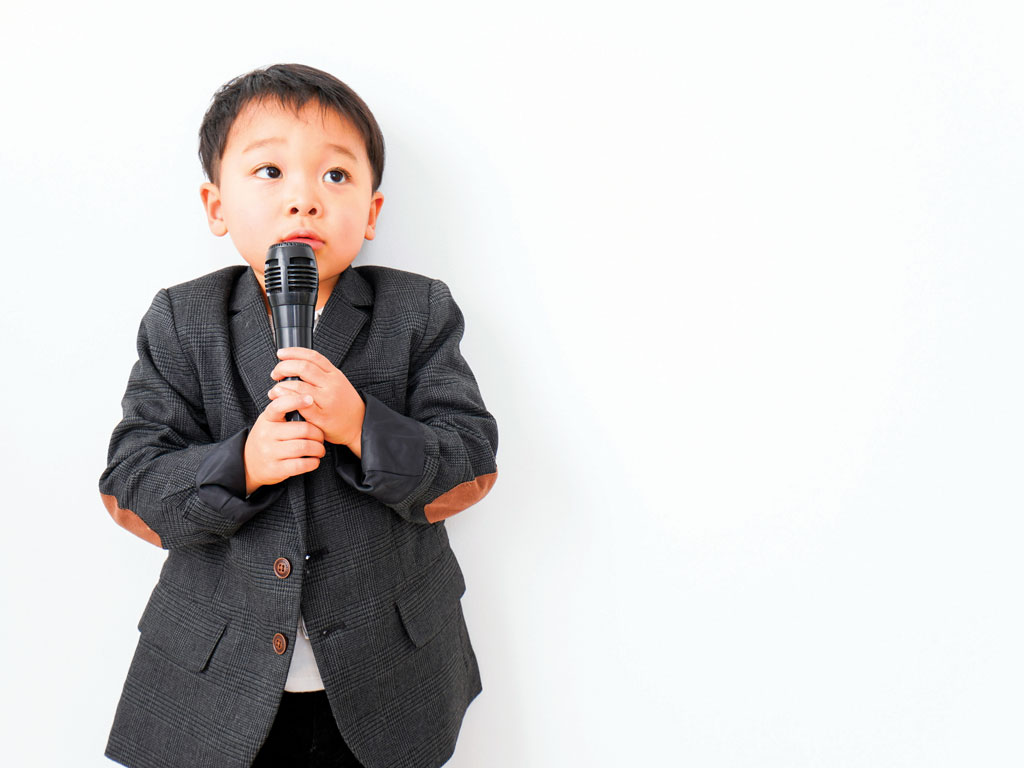by Stephanie Lopes
Growing up can be stressful. Public speaking, theatrical performances, hula dances, music recitals, sporting events, tests and many more performances can cause children to fear or worry.
“We fear being judged and evaluated,” shares Pam Chambers, Hawaii professional speaker and presentation coach. “It’s one thing to offer an idea as we sit with our peers. But the minute we stand up and separate ourselves from the herd, we are alone. We are vulnerable to the appraising eyes and minds of others.”
Some children are able to verbalize their worries or fears while others may internalize their anxiety. Physically, socially or emotionally, these fears or worries can manifest in a variety of manners: rapid breathing, racing pulse, sweating, shaking, vision changes, a dry mouth, an upset stomach (“butterflies in the belly”), difficulty sleeping soundly, clinginess, tantrums, or refusal to participate in an activity, including school and social situations.
Despite the difficulty, overcoming the stress to stand on the stage, to spike the ball over the net or to say ‘hello’ to the new friend can create a newfound confidence in children. And how we feel or think about ourselves, known as self-confidence, is imperative for developing positive relationships and reaching future goals.
How can we assist in easing our child’s performance anxiety to set them up for future success? Parents might find a range of responses resonate with their child.
Respond with calmness.
Are you worried that your child is worried? A parent’s panic – or peacefulness – can be passed on to a child. While life is stressful at times, a parent’s calm vocal tone, deep breathing, patience and uplifting conversations can serve as a model for overcoming anxious feelings.
As a response, you might ask a question to solicit more information or to show compassion for your child: “I used to feel nervous before I stepped up to the plate too, but then I realized all my teammates were cheering for me.” “Do you think Taylor Swift is scared before her concerts?” Prompts might help to enable a child to identify feelings, so they can get more specific in finding a way to work with them.

Start small.
Perhaps the lead solo isn’t the place to start for a child with performance anxiety. Starting as a stagehand or assistant director might be a better solution. As they are exposed to other children in the performance and familiarize themselves with the venue and task, they might become more comfortable, even progressing to centerstage parts with parents’ and peers’ encouragement.
Encourage practice and praise persistence.
The more a child succeeds, the more their confidence builds. Is the new piano solo causing their fingers to shake? Have them practice again and again – and again – at home. Praise them for their resilience and also their success when the piece is played beautifully (or for the portions they played well).
Also, discuss with children that “temporary setbacks” (mistakes or failures) are a part of the learning process. Support them through a setback and teach them phrases to boost their positive self-talk: “I can do it!” “I will make the effort.” “I will keep trying.”

Make friends and visualize success beforehand.
“From an early age, we are taught not to speak to strangers. But then, as we go through school and job experiences, we are expected to stand on a stage and speak to a crowd of people we may not know,” explains Chambers.
Not knowing the audience, venue, or the performance can definitely cause anxiety. Beforehand, older children can sit still and visualize their performance, working through any difficulties independently or with the help of a parent or coach. Younger children can act out their performance, improvising for equipment or the setting.
Chambers encourages public speakers to get to know the audience and venue before the big day. She expands, “Get to your speaking venue early so that you can meet some of the people you’ll be talking to. When you create a connection with the audience, you have a sense that helping hands are carrying some of the load. You are no longer alone.”

Believe in the message or mission.
What is the goal of the performance? Are they surfing in the contest to enjoy the waves and try their best? Are they speaking on stage to share an important message? Focusing on the goal may take some pressure off the overall performance.
Chambers offers some advice to encourage children with public speaking: “Show how your child’s message will help others. Clammy hands and butterflies in the stomach are tolerable when we believe that our message is worthy…Know and love your subject, and you will communicate eagerly, naturally, and without self-consciousness.”
Practice relaxation techniques.
Slow deep breaths, pretending to be somewhere else, stretching, reading a book, listening to music, talking to a friend, taking a walk: All of these relaxation techniques could be a possible tool to ease the nervous jitters.
When performing, Chambers offers another tool, “Release adrenaline by digging one’s toes into the floor for several seconds. This is similar to letting too much air out of a bicycle tire.”

Have healthy habits.
When the big day approaches, a good night of sleep, nourishing food, and enough water (and bathroom breaks) will help your child to feel their best. Try to arrive to the venue early to mitigate any anxiety around being late.
Celebrate confidence.
Yay! Your child stepped up to the plate, sang the song, spoke the speech or made a new friend. With your steadfast encouragement, they did it! Now, praise them for their resilient effort and for being confident to achieve a new feat.
Pam Chambers has been a professional speaker and presentation coach in Hawaii since 1985. For more information, visit PamChambers.com or email SpeakOut@PamChambers.com.
Anxiety Disorder
Fears and worries are typical for children, especially when it comes to performances. However, the Center for Disease Control and Prevention (CDC) identifies the following symptoms that may indicate an anxiety disorder. As always, if a parent has any inclination that something might be wrong, speak with a trusted healthcare provider, such as your child’s pediatrician. Also note the U.S. Preventive Services Taskforce doesn’t recommend screening for anxiety in children until age eight.
- Being very afraid when away from parents (separation anxiety)
- Having extreme fear about a specific thing or situation, such as dogs, insects or going to the doctor (phobias)
- Being very afraid of school and other places where there are people (social anxiety)
- Being very worried about the future and about bad things happening (general anxiety)
- Having repeated episodes of sudden, unexpected, intense fear that come with symptoms like heart pounding, having trouble breathing, or feeling dizzy, shaky or sweaty (panic disorder)





